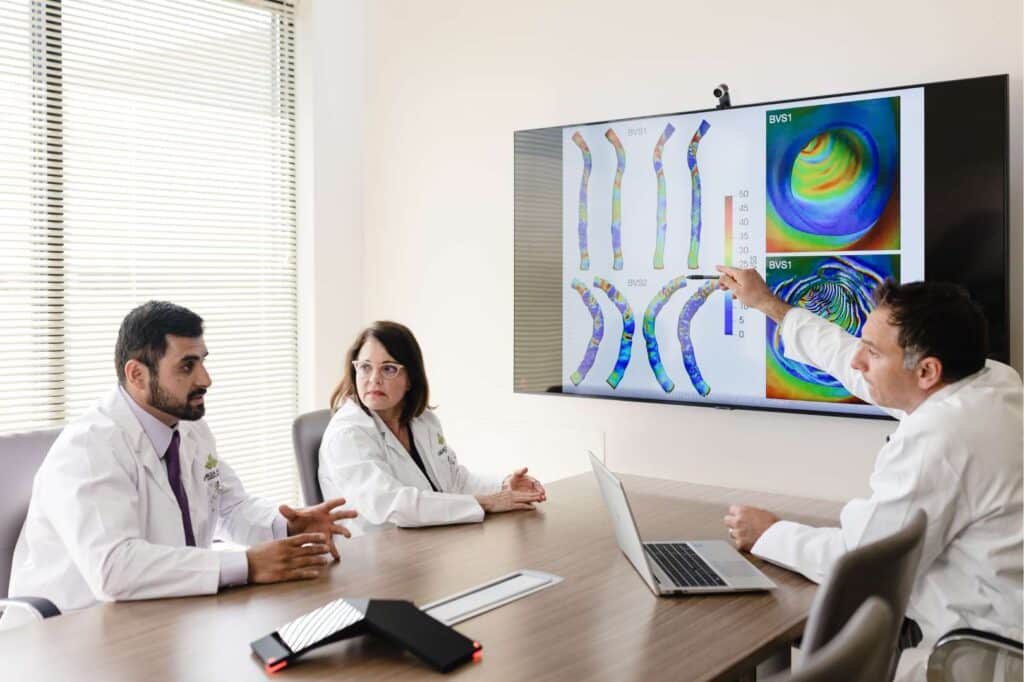At Georgia Heart Institute, our research not only sets the pace for the future of heart care, but it also enhances the services and treatments we’re providing today.
Delivering the highest level of care starts with a commitment to new discovery, continual growth and collaboration between experts.
From innovative research and leading publications to specialized clinical trials, our physicians, surgeons and research team are directly involved in finding new and better ways to prevent and treat heart disease. Ultimately, this ensures we’re saving lives and improving heart health for generations.

What research does Georgia Heart Institute participate in?
As the most forward-thinking heart and vascular program in the state, Georgia Heart Institute is actively conducting cutting-edge research focused on improving patient outcomes across the spectrum of specialties within cardiology. Our ongoing studies and clinical trials aim to advance every facet of heart and vascular care, including cardiothoracic surgery, electrophysiology, interventional cardiology, heart failure, advanced cardiac imaging and disease prevention.
When new medications or medical devices are developed with the intent to prevent, diagnose or treat a specific heart condition, clinical trials are used to scientifically evaluate the safety and effectiveness of the new therapy. Every year, Georgia Heart Institute offers patients the opportunity to expand their treatment options through participation in nationally and internationally recognized clinical trials offering access to breakthrough new medications and medical devices. Georgia Heart Institute participates in more than 20 clinical trials annually, to provide patients the opportunity to choose the latest, most innovative therapies available.
Georgia Heart Institute is one of very few health systems in the state to have received national funding through the National Institutes of Health (NIH) to perform research studies. In collaboration with renowned heart and vascular experts across the country, researchers and cardiologists at Georgia Heart Institute are answering some of the most complex and important questions in heart care today.
With leading research studies and initiatives at Georgia Heart Institute, our experts are collaborating with other physicians to study and advance heart care. They share their findings and medical breakthroughs with others in the field through journal articles. Every year, our team publishes dozens of articles in some of the most coveted and respected peer-reviewed journals around the world.
How does research impact my care?
While research enables our team to advance care for the future, it’s also an important tool that helps physicians and surgeons improve the services and treatments we’re providing today. Our team is continually studying and evaluating current medications, procedures and technologies to identify the best and most effective methods to care for patients.
By participating in clinical trials and research, our team has access to an international community of heart and vascular clinicians with whom we can collaborate to ensure that we’re using the latest techniques and most recent discoveries to improve patient care.
A few ways that research directly improves your care every day:
- More precise diagnoses
- Specialized care for complex or rare conditions
- More effective and innovative treatments
- Increased capabilities through cutting-edge technology
- Higher standards of care to ensure patient safety and clinical quality
Connect With Our Program
| 1 |
Contact our research team for more information at 770-219-9010. |
| 2 |

